Jason Micheli's Blog, page 51
February 14, 2024
Be Reconciled
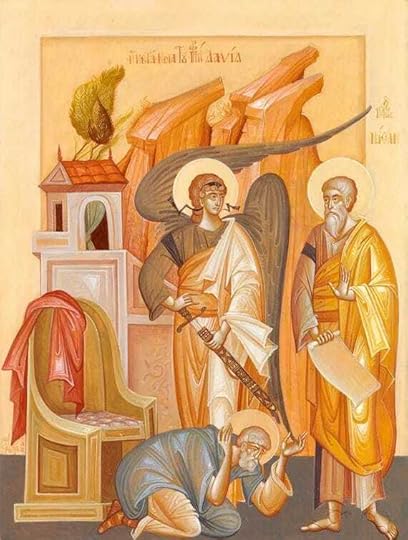
Tamed Cynic is a reader-supported publication. If you appreciate the work, pay it forward by becoming a paid subscriber!
For Ash Wednesday, my friend and parishioner Dennis Zulu preached on 2 Corinthians 5:
“We entreat you on behalf of Christ, be reconciled to God. For our sake he made him to be sin who knew no sin, so that in him we might become the righteousness of God.”
Click the tab for the transcript.
And here is a wonderful testimony Dennis offered a bit ago:
If the Devil Won the Test, the World Would Not Be

Tamed Cynic is a reader-supported publication. If you appreciate the work, pay it forward by becoming a paid subscriber!
Mark 1:9-15
The New Testament scholar J. Louis Martyn refers to the apocalyptic announcement of the gospel as a watershed event. Either we will (re)interpret all reality from the starting point of Christ and him crucified, or we will retrofit Jesus and his work to our antecedent assumptions.
The Gospel passage with which the church begins the season of Lent is a clear example of what Martyn means by making Jesus Christ the starting point of all our thinking; in particular, Martyn would have us interpret the ostensibly general claims of the Old Testament in light of the creedal claims about Mary’s boy and Pilate’s victim.
For instance—
The Book of Genesis confesses that in the beginning God created the heavens and the earth ex nihilo. That is, the Lord simply spoke existence into being. He created using no pre-existing materials; therefore, every item of creation has no ultimate source for its being other than the Being of God.
Just so, all of life is contingent. It need not be so. And it would not be apart from the ongoing gratuity of God.This is what we pray in the Prayer of Thanksgiving,“We bless you for our creation, our preservation, and all the blessings of this life…”
Now if the incarnation is a watershed event, as Martyn posits, then we must attempt to understand the contingency of our created lives in light of Jesus’s life. This we may do in connection with the lectionary Gospel passage for the First Sunday of Lent:
In those days Jesus came from Nazareth of Galilee and was baptized by John in the Jordan. And just as he was coming up out of the water, he saw the heavens torn apart and the Spirit descending like a dove on him. And a voice came from heaven, "You are my Son, the Beloved; with you I am well pleased." And the Spirit immediately drove him out into the wilderness. He was in the wilderness forty days, tempted by Satan; and he was with the wild beasts; and the angels waited on him.
The Father creating ex nihilo is not a starting point for our thinking.
The Father creating ex nihilo is rather a conclusion from the fact that the Son was truly tempted in the wilderness by the devil.
Creation is contingent because Jesus, by whom and for whom and in whom all things on heaven and earth were created, may have failed the Adversary’s tripartite test.

As Robert Jenson writes:
Christianity's doctrine of creation presents a drastically revisionary ary metaphysics, a construal of reality that affirms an encompassing ing creaturely contingency: we and all our universe might not have been.
As high-medieval theology stated it with marvelous precision, no reality other than God has in what it is any reason that it is. We exist and exist as we do because God determines that we shall, and that is all there is to be said. Our human effort to avoid Scripture's metaphysical put-down continues still. The currently standard account of the origin of our universe seems to suggest that its existence is contingent, since the universe is thought to begin with an unpredictable and inexplicable event— a "singularity"— and with wildly improbable initial conditions for development.
We must ask:
Who is this God who appears as Creator at the beginning of both creed and Genesis? Who is it who provides being of which no trace or potential was there before? Who is it who tolerates no antecedents, of himself or his works?
The creed identifies him as "the Father" of the next to be introduced "Son," "Jesus Christ." Accordingly, the first article's doxology of the Father as "Almighty" and "Creator" is praise for his works, exemplified by those narrated in the article about the Son. Therefore we may gloss Genesis 1:1: "In the beginning the Father of Jesus created the heavens and the earth."
The move Jenson makes is crucial for understanding the triune identity and, with it, the glad fact of our lives. The Father’s relationship to Jesus, the Son’s relationship to the Father, their Spirit’s witness to their love is the presupposition to creation. The life of Jesus is not merely one we can plot chronologically on a timeline because it preexists creation itself.
What does this insistence mean for us?
Jenson continues:
Nor is this identification (“In the beginning the Father of Jesus created…”) without consequence.
On the contrary, it even suggests that the contingency of the world is founded in the contingency of Jesus' life, death, and resurrection. It is because Jesus was truly tempted and so might have fallen…It is because the Father was not compelled to raise Jesus from the death to which his steadfastness brought him…It is because just this contingently faithful and rescued person is the eternal Son for whom all things were created (Col. 1:15-20) that all created being might not have been.For nearly two millennia, Christian theology has been trying, if only by fits and starts and with major backslidings, to take this metaphysically revolutionary axiom seriously; the contingently particular story of Jesus is the universal truth of created reality; and therefore universal truth is itself a contingent fact and not an abstract necessity.
In other words—
It is not merely that the crucifixion of the Son of God is the turning of the ages; it is that any moment of his life could have meant the erasure of our own lives. At every juncture, his life is a watershed. Had the Devil won the testing in the wilderness, the world would not have been. If the Man for Others had concluded, “Yes, I will turn those stones into bread,” you and I would not be.
 Get more from Jason Micheli in the Substack appAvailable for iOS and AndroidGet the app
Get more from Jason Micheli in the Substack appAvailable for iOS and AndroidGet the app
February 13, 2024
What If Jesus HAD Made Bread from Stones?

Tamed Cynic is a reader-supported publication. If you appreciate the work, pay it forward by becoming a paid subscriber!
With Ash Wednesday tomorrow, the other purple season sets upon us. The lectionary Gospel passage for the first Sunday of Lent is Mark 1.9-15:
In those days Jesus came from Nazareth of Galilee and was baptized by John in the Jordan. And just as he was coming up out of the water, he saw the heavens torn apart and the Spirit descending like a dove on him. And a voice came from heaven, "You are my Son, the Beloved; with you I am well pleased."
And the Spirit immediately drove him out into the wilderness.
He was in the wilderness forty days, tempted by Satan; and he was with the wild beasts; and the angels waited on him."
You can listen to me discuss the passage for the first Sunday of Lent:
Mark’s account of the temptation in the desert is sparer than the other Evangelists, who specificy each of the three trials. For example, Matthew reports that the Enemy’s first temptation targets Jesus’s hunger:
The question that Satan raises of the Son is as simple as it seldom asked:What would it have meant if Jesus had yielded?“The tempter came to him and said, “If you are the Son of God, tell these stones to become bread.”
In Volume IV.1 of the Church Dogmatics, paragraph §59, Karl Barth reflects upon this very question under the header, “The Judge Judged in Our Place.”
First, Barth observes that none of the Synoptic accounts of the testing involve the Adversary asking Jesus to break the Law:
“In none of the three temptations is there brought before us a devil who is obviously godless or danger or even stupid. And in none of them is the temptation a temptation to which we might call a breaking or failure to keep the Law on the moral or juridical plane.
In all three we have to do “only” with the counsel, the suggestion, that He should not be true to the way on which He entered the Jordan, that of a great sinner repenting.He would have taken a direction which will not need to have the cross as its end and goal. But if Jesus had done this He would have done something far worse than any breaking of failure to keep the Law. He would have done that which is the essence of everything bad. For it would have meant that without His obedience the enmity of the world against God would have persisted, without His penitence the destruction of the cosmos could not have been arrested.”
Next, Barth reflects upon Jesus’s hunger strike and what it would have meant for Jesus to agree to Satan’s suggestion to turn stones into bread:
February 12, 2024
Lenten Study with Rabbi Joseph Edelheit
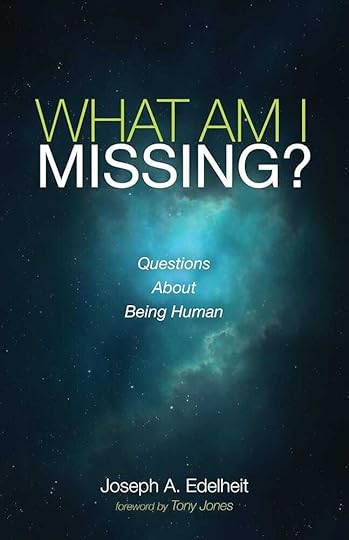
Apologies for jamming your inbox but I apparently confused folks:
NEXT UP— Starting 2/19 at 7:00 EST with Rabbi Joseph EdelheitOur Monday night study will meet tonight at 7:00 to conclude our discussion of Fleming’s book, Epiphany.
Register HERE.
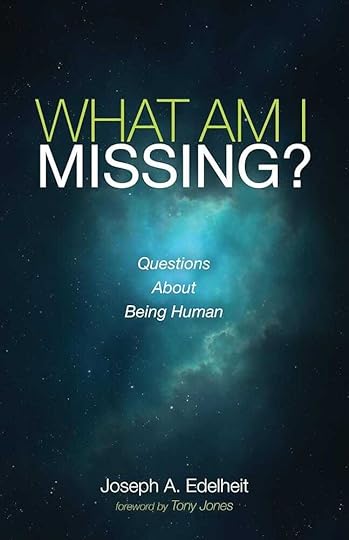
Register HERE.
What Am I Missing? illuminates the difficult life lesson that everyone is missing something in their lives. This truth includes six significant characters of the Hebrew Bible: Abraham and Rachel; Moses and Miriam; and David and Esther. Using texts from the Hebrew Bible as our source of interpretation, we will search for the meaning of "what is missing" in each of them and ourselves. These challenges will provoke questions that have no simple answers and stimulate us to reflect on being a human with purpose and hope today.
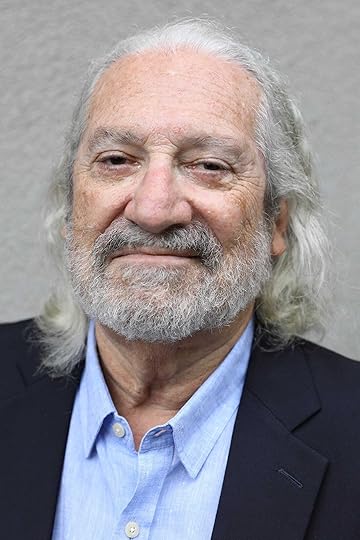
Our sessions will proceed thus:
2/19-Chapter 1-Kushner/Missing Piece
2/26-Chapter 2-6 characters/3 characteristics-Wiesel Questions
3/4- Ab/Rachel-Empathy/Pluralism
3/11-Miriam/Moses-Feminist/Leadership-Enough
3/18-David/Esther-Power/Fear
3/25-Chapter 9
You can find the book HERE.
 Get more from Jason Micheli in the Substack appAvailable for iOS and AndroidGet the app
Get more from Jason Micheli in the Substack appAvailable for iOS and AndroidGet the app
Death is Not Natural
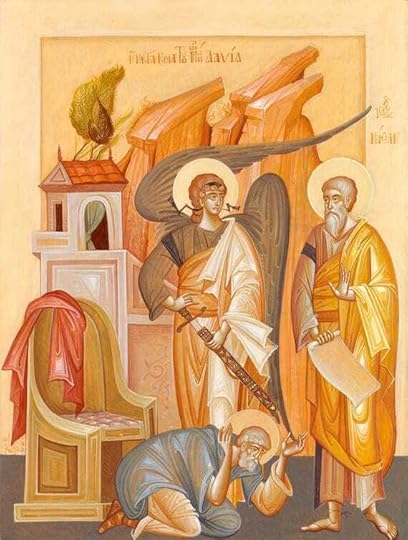
Tamed Cynic is a reader-supported publication. If you appreciate the work, pay it forward by becoming a paid subscriber!
A Homily for Ash Wednesday — Psalm 51 and Romans 7.19-25
A church member in a former congregation, Roger, was a sharp, successful small-town lawyer whose alcoholism and philandering had destroyed his first two marriages and, by the time I became his pastor, was destroying him. I went to visit him in the hospital as he died slowly of liver failure. With each visit his skin and eyes had assumed a more yellowed hue.
After my final visit, when his breathing had gotten shallow and his words confused, I knew I should stop at his best friend’s house on the way back to the parsonage. I knocked on the screen door on Billy’s back porch. I could hear an Orioles game playing on the TV in the family room. Billy and his live-in girlfriend had had me over for dinner many times so I wasn’t surprised when he answered the door wearing a polo shirt that probably fit him in the Carter administration and, below the waist, even tighter bikini briefs.
“Billy, I’ve just come from seeing Roger. It’s time.”
“You sure?”
He squeezed his eyes to fight back the tears and he laid bear paw grip on my shoulder to steady himself. “You never know for sure,” I said, “but I prayed and offered him the absolution. So yeah, it’s time. He’s dying.” And suddenly he gathered himself and ran to get pants that were draped over the kitchen island stool.
“If he’s going to be dead soon, then we’ve got to get to his office quick.”
“His office?” I asked, confused, “Why in the world do we need to go to his office?”
“You’ll see,” he said, “We’ll be back in a jiffy, honey,” he hollered at his girlfriend Mary.
Once we got to Roger’s law office, Billy produced a key from the pocket of his pants, which also appeared designed for a fraction of this man. Inside, Billy dragged a heavy leather chair across the office floor. He stood up on it, reached up towards the ceiling, removed a water-stained tile, felt around on all sides until he found it and then pulled down a cardboard banker’s box and handed it to me.
“Look, Billy, I don’t know that we should be doing this.”
“Shut up and take the damn box,” he said, “before I drop it.”
I looked inside the box and I suddenly both understood and yet still didn’t understand what we were doing there. Inside the box, along with a half-dozen liquor bottles, were photographs of Roger with women. The kinds of Polaroids I can’t describe in church. None of the women in them, I noticed, were his present wife.
“Prostitutes mostly,” Billy said, “His wife thought different but Roger— God bless him— he never could stop being a rascal.”
And Bill started to squeeze his eyes again against the tears. And then he grabbed hold of me and cried into my hair. I was still holding the box of dirty pictures and bottles of booze, and after an uncomfortable amount of time I said,
“So, Billy, uh…what’s the plan here? What are we going to do with this?”
“We’re going to get it out of here so his wife never discovers it that’s what we’re going to do. She thinks he’d put all this behind him. He should remembered as the man who was forgiven not the man who kept on carrying on.”
I looked down at the box and its sordid contents.
“I don’t know,” I said with not a little sanctimony in my voice, “I’m not sure that’s the right thing to do. I mean, look at these— this… this is wrong.”
And just like that Billy wasn’t crying anymore. He narrowed his eyes and raised his head back, angry or disappointed, and he said to me:
“Do you just talk about sin and grace, preacher, or do you actually believe it?”
“I uh, no of course, I believe it.”
“Well, good,” he said, “because it seems to me we’ve got ourselves a sinner we can show some grace to before he dies. I’m going to take this and put it away once and for all."
That wasn’t the only evidence we removed from his office that night like custodians in the far country cleaning up after the prodigal who’s gone home.
“That’s a lot of stuff,” I said, looking in Billy’s trunk.
“We’ve all got a lot of stuff,” he replied.
The writer Janet Malcolm writes in her book, In the Freud Archives:
“There are few among us who do not resist self-knowledge. We are all perpetually smoothing and rearranging reality to conform to our wishes; we lie to others and ourselves constantly, unthinkingly.
When, occasionally— and not by dint of our own efforts but the under the pressure of external events— we are forced to see things as they are, we are like naked people in a storm.”
Ash Wednesday is the beginning of the season of Lent, which means once again there is an external event looming on the horizon, forty days from now, the pressure of which will strip us bare and force us to confront the naked truth that when God came among us in the flesh all those who should’ve known best, all those on whose expertise the world relies, all those who presumed themselves to be God’s faithful people, all those very much ourselves, they responded to the incarnation of God into our world by pushing him out of our world on a cross.
There’s a storm gathering that will leave us laid bare.
It’s called Good Friday.
The event of the crucifixion forces upon us the disorienting truth that Christmas could come again and again and again, in any time or place, and every time we will choose to shout, “Crucify him!” We know this.
Unique among all other people in the world— at least, in theory— Christians are those people who know that what we contribute to our salvation is the hammer in our hands and the nail we drive through our Lord’s feet.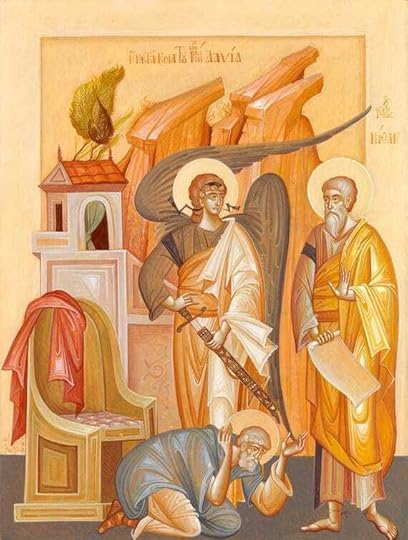
On Ash Wednesday the Church becomes a pressure system, an unavoidable ash-wearing external event, whereby, on behalf of the world, we confront the world with the truth about ourselves— the truth that God has a case against us.
On Ash Wednesday we cease our perpetual smoothing and rearranging of reality and instead we wear it for all to see.
Ash Wednesday is not primarily about our mortality. No one who hears Psalm 51, which the lectionary assigns to us every Ash Wednesday, would come away from King David’s confession thinking our problem is that “our days are like grass.”No, David prayed Psalm 51 after the prophet Nathan confronted him over having committed adultery with Bathsheba and then murdering her husband, Uriah. Nathan forces David to see things as they really are. And the reality is, “Against you, you alone, have I sinned.”
David doesn’t confess, “Against Bathsheba have I sinned.”
David doesn’t lament, “Against Uriah have I sinned.”
Sin, David sees, isn’t an ethical concept at all. Sin a theological concept. Sin— all sin, every sin— is a sin against God.“Against you, O God, you alone, have I sinned.” Ash Wednesday is not about our mortality. It is about our sin, “Remember that from dust you came and to dust you shall return.” The words with which the Church imposes ashes are not a comment on the natural state of things, Remember, people, you’re all going to die.
Death is not natural.
Death, Paul says, is the wage we’ve earned for sin.
The words with which the Church imposes ashes are the same words with which God pronounces his curse upon a fallen world:
“‘Because you have listened to the voice of [the serpent], and have eaten of the tree about which I commanded you, cursed [are you]; until you return to the ground, for out of it you were taken; you are dust, and to dust you shall return.’”
February 11, 2024
Indiscrete Zeal
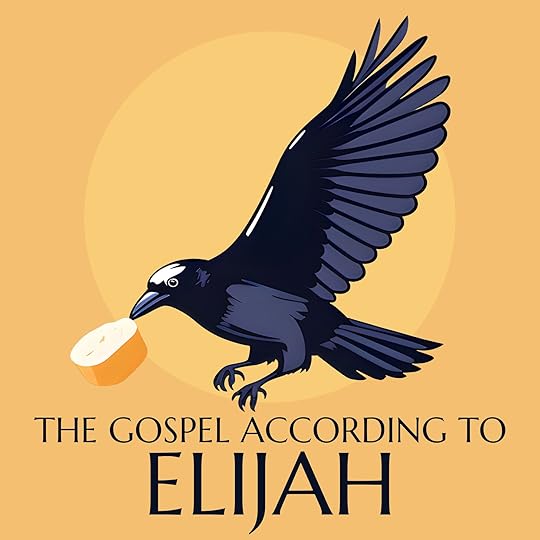
Tamed Cynic is a reader-supported publication. If you appreciate the work, pay it forward by becoming a paid subscriber.
Transfiguration Sunday — 1 Kings 19.1-6 & Mark 9.2-9
The last time I preached through the Book of Kings and preached on Ahab and Jezebel’s violent regime was during our second war in Iraq. It was during Lent and in the sermon the Lord summoned me to speak a word about the use of state-sponsored torture. Newspapers had only recently begun reporting on the Torture Memos which documented the ghastly abuses by at the prison in Abu Ghraib. The images outraged the world.
In the face of such revelations, the churches in America were silent.
I was young and brash and preached what I took to be self-evident.
“Why is the church in America so quiet these days?” I exhorted my hearers.
I let question linger for an uncomfortably long silence before I continued:
“Why are Christians so quiet about this particular issue? What is the matter with us? The left wing of the church is preoccupied with homosexuality and the right wing of the church is consumed by abortion. Why is this? Has the church lost its nerve? Has the church forsaken the scriptures? Has the church forgotten we worship a crucified Lord?
No matter what a person has done or is suspected of doing, once that person is taken into custody, he or she becomes defenseless. The Old and New Testaments alike are clear: abuse of a defenseless person is an abomination in God’s sight. The defenselessness of a fetus is a central argument advanced against abortion.
This conviction about defending the defenseless lies at the very heart of our faith. Yet we are silent, as quiet as all his followers who did not shout, “Do not crucify him!”
It may not have been the most prudent word to preach. Or sensitive.
But it was true.
Therefore it was God’s word.
And God’s word, scripture says, not only makes alive but kills.The word of the Lord that Sunday morning struck a blow.It disturbed the “peace.”As soon as I handed over the benediction, a church member assaulted me in the narthex and, sticking his finger in my chest, hollered at me, “Just where do you get off preaching like that, preacher?!”
I stammered.
“Well, Senator,” I said, “It is Lent and the Lord was tortured to death.”
The Chair of the Armed Services Committee shook his head and waved his finger at me.
“You tell me, preacher— if Jesus was still alive, do you honestly think he’d having anything to say about torture and the government?!”
“Um, well Senator, uh…I mean, he was crucified, I think...um...maybe he would have...” I started to say.
He shook his head and waved me off.
“Jesus would be rolling over in his grave if he knew you’d brought politics into our church! Just where did you get the idea that politics has any place in the pulpit?!”
“He doesn’t have a grave…it’s empty…” I muttered to myself.
“What’s that?” he asked.
“Never mind,” I said.
He stood there, his hands on his hips, dandruff on his shoulders, waiting for me to answers.
Finally, he repeated his question, “Where did you get the idea that politics has any place in the pulpit?!”
I stammered, “Uh, it’s called the Book of Kings.”
He thought I was being cute.
“You better watch out!” he threatened, “I could have you run out of this place!” And then he shook his now crimson head, motioned for his wife to catch up to him, and then he hurried off.
A few weeks after, on Easter Sunday, when he arrived, opened up the worship bulletin and saw that I was the preacher, he turned right around and left the way he had come. I wasn’t the only one who noticed, and I was made aware of the damage I had wreaked. Later, I left and went home, feeling not a little sorry for myself and ruing a calling I had not chosen but nevertheless could not shake.
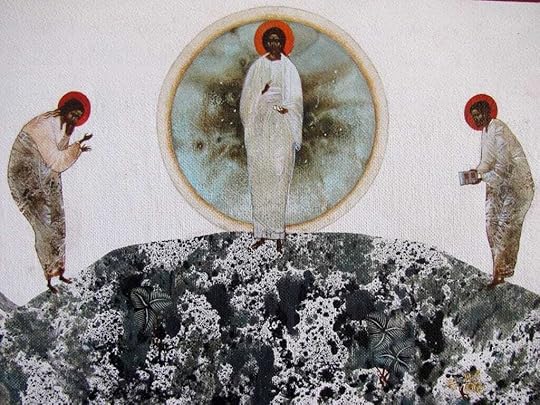
For a brief moment, it appears God’s wayward Israel is back on track.
The word that struck like a fever into the heart of the earth has broken and the judgment that had parched the promised land for three years is over. The barren deity Baal has been disgraced and his false prophets have been dispatched. Ahab has departed from Mt. Carmel, with the Man of God running out ahead of him as a herald of Israel’s king and the Lord’s covenant with Israel renewed.
Alas, the very same word of the Lord that had induced faith in Israel, “Yahweh indeed is God; Yahweh indeed is God,” arouses opposition from Israel’s queen.
Like Pharaoh before Moses, when she learns what Yahweh has done, Jezebel’s heart hardens.
Realizing she’s on the wrong side of the true and living God’s work in the world, Jezebel neither repents nor relents. She resorts to wrath.
Whether or not the Lord is responsible for the slaughter of the four hundred and fifty prophets false prophets, Jezebel clearly believes she has been addressed by Yahweh in the killing of her prophets.The Lord’s word to her is the piece of news that propels her act.
And Jezebel vows to make Elijah one of the corpses floating in the wadi, a brook flowing red with blood.
No sooner has success come to the Man of God than God’s enemies pick a fight with him.
Commenting on this passage and comparing it the similarly hostile reactions to the ministries of Jesus of Nazareth and the apostle Paul, the Reformed theologian Peter Leithart asks:
The church’s enemies need not pick a fight.But the church must always pick a fight.
“Why do the church’s enemies have to pick a fight just when things get rolling?”
“The answer,” Leithart insists, “is they don’t. The church does.”
Peter Leithart writes:
“Jesus does not come to bring peace but a sword, to set brother against brother, mother against daughter, [senator against preacher].
Following its master, the church likewise provokes the hostility, hatred, and resentment of the world at every turn. This is not the result of some flaw in the church’s ministry, but the opposite.
When the church is faithful, it announces judgment of this world (John 12:31), the universal corruption and disorder of humanity (Rom. 1:18–32), and the overthrow of the prince of this world (John 16.11).
We do not need Nietzsche to tell us that we are dominated by lies and violence, motivated by pride, envy, lust, wrath, and vengefulness. We do not need Foucault to teach us that the world languishes under the dominion of the dark powers, principalities, and wickedness in high places. [We do not need Critical Theory to teach us that our systems and institutions are not immune from the contagion of original sin.]
We proclaim Christ and him crucified. Inherent in the gospel is the condemnation of this world, and when we preach such a gospel, we cannot help but pick a fight.”
We cannot help but pick a fight.
Notice—
Jezebel’s actions are neither surprising nor instigative.Jezebel’s actions are not even actions.Jezebel’s actions are really reactions.Elijah is the aggressor.Like Elijah the Troubler of Israel, the church is an aggressor, if and when we refuse to be silent and proclaim the gospel that is at once the judgment of “this present evil age.”
Present evil age— that’s how Jesus describes the world that tortures him.
As Peter Leithart puts it:
The gospel is the opposite of the Hippocratic oath!We mean to do harm.When we do not forget our baptisms, followers of Jesus are no less irksome than the Troubler of Israel.The church does mean to do harm to unbelief, to injustice, and to wickedness. The church does mean to do harm, casting down every vain imagination and defeating every thought that exalts itself above Christ Jesus. The church does mean to do harm, by proclaiming the gospel until every knee bows down in surrender to Jesus Christ the Lord.
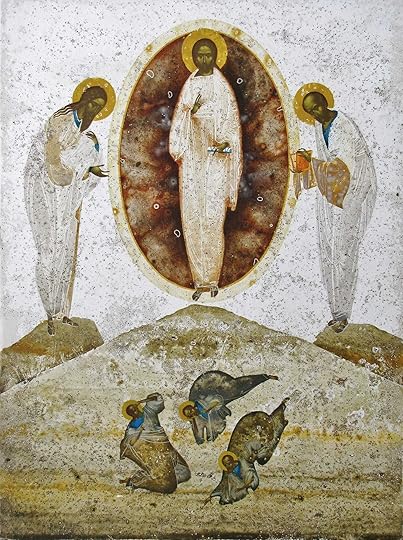
Years after he accosted me in the narthex, he came to me, inquiring about baptism. The Lord had not saved him through water and the Spirit, and he was at an age where it nagged at him. In the intervening years, I’d grown on him and he had learned to trust me.
We were talking about baptism in my office, my print of Karl Barth before an empty tomb hanging behind his head, when all of a sudden he changed the subject.
He took off his glasses.
He rubbed his bald head with his sleeve.
And he said, “All those years ago, when I got angry with you for your (he struggled still to call it such) sermon. You let me walk away. You didn’t pursue me or follow up with me. Why?”
And this time I was sitting but I resumed my stammering, “Uh…”
He shook his head and put his elbows on his knees, leaning forward.
“Was what you said about the Bible true?” he asked me.
“Yes,” I think so— I mean, I believe so.
He nodded like I was a witness in a committee hearing.
“And was what you preached about Jesus true?”
I nodded.
“Then why for God’s sake did you let me walk away?”
I felt cheeks flush red.
“I was…I was afraid…”
He smiled graciously and filled in the blank, “You were afraid to pick a fight with a senator.”
I shrugged my shoulders in submission.
“Well, take it from a politician. There’s nothing that’s true that’s not worth fighting over.”
I nodded, not accustomed to being on the receiving end of a sermon.
“And if it’s a matter of ultimate, eternal truth,” he said, looking at the carpet, “Well, then, I expect you should speak as plainly and fight as indecently as you know how.”
Inherent in the gospel is the condemnation of this world, and when we preach such a gospel, we cannot help but pick a fight.
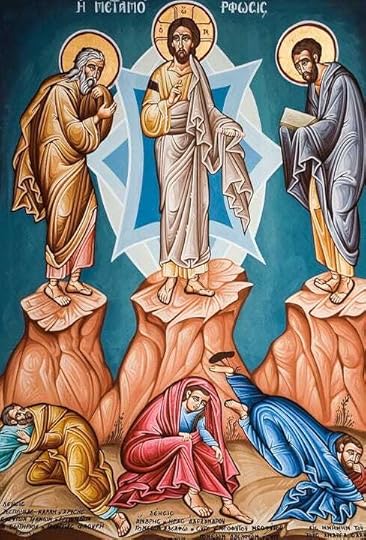
Benjamin Lay was a seventeenth century Christian, whom popular history has forgotten. A dissenter and a strategic practitioner of incivility, Lay was an English commoner who traveled the world as a sailor.
Afflicted with kyphosis, Lay stood barely beyond four feet tall.Yet his stature did not stand in the way of his witness.In particular, Lay agitated against slavery and the “false ministers” who tolerated or defended the practice. At church, Lay would start arguments with preachers in the middle of their sermons.
A letter sent from his church in London to a church in Philadelphia, where he was booked to speak, accused him of “Indiscreet Zeal.”
As a sailor, he and his wife had been banished from Barbados for denouncing the sugar industry and inviting the slaves who enabled it to dinner at his family table.
On September 19, 1738, Lay attended a worship service in Philadelphia.
He smuggled into the service a military uniform, a sword, and a Bible that he’d rigged for a prophetic purpose.
In the middle of the preacher’s milquetoast sermon, Benjamin Lay stood up and shouted that God loved all people equally, regardless of how sinners sought to interpret his word.
Lay then threw off his cloak, revealing his hidden tools.
He proclaimed, “Thus shall God shed the blood of those persons who discriminate against their fellow creatures.”
Then he stabbed the Bible he had brought with the sword had had carried under his cloak.
Only Lay had hollowed out the pages of the Bible and placed in the pocket a pig’s bladder filled with pokeberry juice.
Thus when he proclaimed the word of the Lord, he simultaneously splattered blood on the slave keepers and their apologists.
As one historian remarks:
“As long as Christians owned slaves, there would be no business as usual if Benjamin could help it. His brothers and sisters in Christ had made peace with the devil, so he used his body to disrupt their hypocritical, pious routines.”
In other words, he knew that if the gospel is a promise of God’s Future then likewise is it a judgment on our present.
And so the dwarf practiced indiscrete zeal.
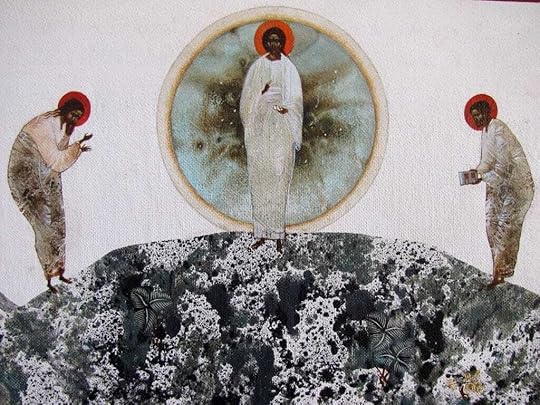
The day before his trial for picking a fight in Birmingham, Alabama, Martin Luther King Jr. preached at Dexter Avenue Baptist Church. The violence that would be unleashed on the Freedom Riders in Alabama was a reaction. Those bearing the word of God were the aggressors.
Acknowledging such, King addressed concerns that his witness had upset “the peace and civility of the community.”
In his sermon at Dexter Avenue, King proclaimed provocatively:
”If peace means accepting second class citizenship, I don't want it. If peace means keeping my mouth shut in the midst of injustice and evil, I don’t want it. If peace means being complacently adjusted to a deadening status quo, I don’t want peace. If peace means a willingness to be exploited economically, dominated politically, humiliated and segregated, I don’t want peace. So, in a passive, non-violent manner, we must revolt against this peace.”
The judge who found King guilty suggested in the sentencing that King’s manner of witness was indecent for a Christian.
Between Benjamin Lay and MLK is two hundred and eighteen years.
Between both of them and Mary’s boy is nearly two millennia.
And between Dr. King and you and me is still nearly seven decades.
In other words, God’s drafted us into a battle that is bigger than us.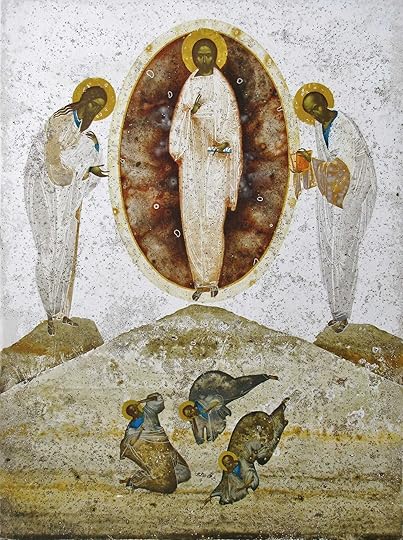
Once Elijah’s aggression sets Jezebel’s hatred in motion, the Troubler of Israel retreats beyond Jezebel’s reach, to the southernmost edge of the Kingdom of Judah.
Sitting under a solitary desert tree, Elijah despairs. Elijah under the broom tree sounds exactly like Jesus in Gethsemane.
“Remain here with me…for I am so depressed I could die,” Jesus begs the disciples in the garden on the night he’s handed over to be tortured.
This correlation should not surprise us.
Our passage displays not simply a clash between two fierce wills, Elijah versus Jezebel, but a conflict between two mighty powers, the power of Almighty God versus the power that is Not God.
As the Dutch biblical scholar, M.B. Van’t Veer writes:
“Jezebel is a prototype of the ancient opposition between God and Satan. This opposition receives its concrete exemplification in these two people of flesh and blood, in whose life the powers from above and the powers from the abyss are manifested. Their struggle forms part of the one great struggle.”
Surprisingly, the clash between Elijah and Jezebel, the opposition between Almighty God and his Enemy, is the conflict the Gospel of Mark shows you on the Mount of Transfiguration.
Typically, interpreters will suggest that Moses and Elijah represent the law and the prophets and thus Jesus is the summation of Israel’s scriptures.But as common an interpretation as that is, it doesn’t square with how Israel read her own scriptures.In the Old Testament Moses is only secondarily the receiver of the law; in the Old Testament Moses is primarily the prophet.And for that matter, Elijah is not really a prophet.No book of the Bible bears his name. Kings only refers to him as a prophet once, calling him instead the “Man of God,” and the “Troubler of Israel.” Once again, Moses represents the prophets not the law. And Elijah is not even a proper prophet. So the “law and the prophets” slogan is not the correct takeaway from the Transfiguration.
Rather than each representing a different feature of Israel’s scriptures, they both share Israel’s exclusive vocation.
Moses and Elijah both picked fights.They are both Troublers of Israel.
Moses went before Pharaoh bearing the word of the Lord, “Thus says Yahweh the God of the Hebrews: “Let my people go, that they may serve me.
Elijah appears in Ahab’s council bearing a similar word, “As the Lord the God of Israel lives, before whom I stand, there shall be neither dew nor rain these years, except by my word.”
Moses and Elijah do not summarize all the law and the prophets. They represent the single battle the Lord wages against the Enemy, whom Jesus names “the Prince of this world,” whom Paul calls the Powers of Sin and Death, and whom Peter labels the Adversary.
The Devil.
To his credit, Peter understands what he sees on the Mount of Transfiguration.
With the two Troublers of Israel beside him, Jesus, who is soon to get himself crucified, is ablaze with the glory of God.
Peter responds by suggesting they build three tabernacles, booths— a reference to Sukkoth, a harvest festival that in Peter’s day anticipated the eschatological harvest.
Seeing Christ transfigured, Peter knows he’s seeing Jesus as he will appear at the end of the age when Christ, as Paul writes, will “deliver the kingdom to God the Father after destroying every rule and every authority and every power… and put all his enemies under his feet…”
Peter suggests building booths because he’s just seen the end of the battle begun in Moses and Elijah.Peter suggests building booths because he knows the Man in the Middle is the last Troubler of Israel.Peter suggests booths because he understands that he’s just glimpsed the one who will finish the fight.Peter’s only mistake is thinking the victory can come apart from the cross.
And our bearing the word of it.
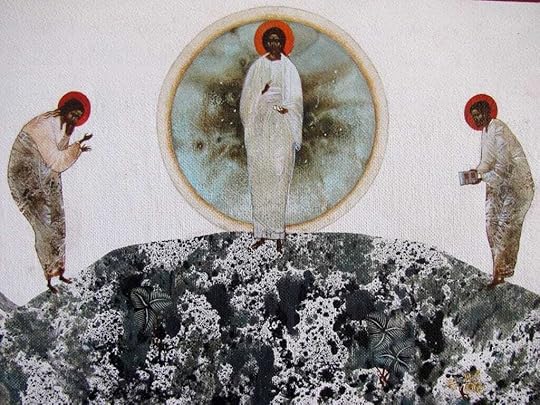
There’s nothing that’s true that’s not worth fighting over.
After he delivered his small sermon to me, I taught the senator the theology of baptism, including that line about renouncing the spiritual forces of wickedness.
“If that’s true,” he said, “then the fight is even bigger than I ever imagined.”
He chuckled as he said it.
But his face belied the laugh.
“I suppose baptism means I’m called to be as irritating as I find you sometimes,” he said and then paused in the middle of his thought, like he was thinking about the wake that would come with the water.
“I’m a politician,” he said and threw out his arms like we were haggling and far past his limit, “Silence is courageous. How can I possibly be so truthful as to pick a fight?”
“No offense,” I replied, “but knowing you— it’s not likely. It’s damn near impossible, I’d say. But with God, who knows? Maybe you’re part of the all in “all things are possible for God.””
Maybe the Lord is able to make us bolder than we can bear.
 Get more from Jason Micheli in the Substack appAvailable for iOS and AndroidGet the app
Get more from Jason Micheli in the Substack appAvailable for iOS and AndroidGet the app
February 9, 2024
The Glory of God Versus the Adversary
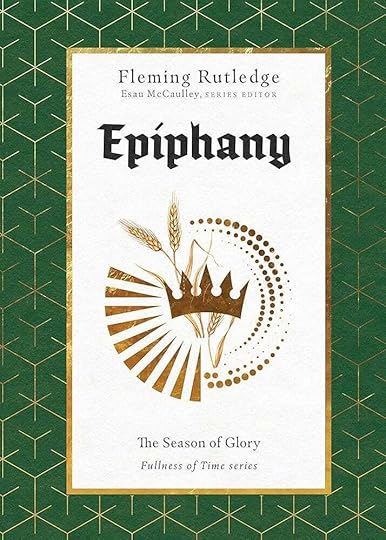
Tamed Cynic is a reader-supported publication. If you appreciate the work, pay it forward by becoming a paid subscriber.
SummaryIn this conversation, the hosts discuss chapters seven and eight of Fleming Rutledge's book, Epiphany: The Season of Glory. They explore the ministry and teaching of Jesus, emphasizing the presence of evil in the world and the need to acknowledge the reality of the adversary. They also discuss the importance of understanding the Sermon on the Mount as a description of the way of life for disciples of Jesus, rather than a prescriptive set of rules. The conversation highlights the ongoing work of Jesus in the lives of believers and the role of the church in embodying the teachings of Jesus. The conversation explores the themes of dependency on others, the role of the church, tension and frustration, becoming a picture of Jesus, transitioning from hero to saint, changing perspectives in ministry, the urgency of saints, moving beyond comfort, revealing authority and identity, the crucifixion as a Lent book, addressing different traditions, and the law and Jesus.
TakeawaysThe ministry of Jesus involves confronting and casting out the powers of evil.
The presence of evil in the world is often overlooked or downplayed in the liberal mainline church.
The Sermon on the Mount is a description of the way of life for disciples of Jesus, not a set of rules to be followed.
The church is called to embody the teachings of Jesus and care for one another in the stress and conflict of daily life.
Following Jesus requires a willingness to come and die, to give up our lives in faithfulness to God. We are dependent on others for courage, sacrifice, and insight.
Loneliness deprives us of inspiration and support from others.
The church should not be a place where we are told what to do, but a community that forms and supports us.
Focusing on individual achievements can lead to tension and frustration within a community.
Becoming a picture of Jesus means pointing beyond ourselves and recognizing that God is the center of the story.
Ministry should be approached with a focus on being a saint rather than a hero.
Saints are about something more urgent and offensive than simple advice for Christian living.
We should strive to move beyond the comfort of our own traditions and embrace a broader perspective.
The Sermon on the Mount emphasizes the identity of Jesus rather than the individual content of the commandments.
Fleming Rutledge's book on the crucifixion can be seen as a Lent book.
Fleming Rutledge's writing brings important themes to light regardless of one's background or tradition.
The law should not overshadow the message and identity of Jesus.
 Get more from Jason Micheli in the Substack appAvailable for iOS and AndroidGet the app
Get more from Jason Micheli in the Substack appAvailable for iOS and AndroidGet the appChapters
00:00Introduction
05:02The Ministry and Teaching of Jesus
06:31The Ministry of Jesus in the Context of God's Action Against the Adversary
10:56The Presence of Evil in the World
18:10The Baptism of Jesus and the Conquering of Evil
20:32The Man with the Unclean Spirit
25:12The Chastening of Optimism
31:20The Purpose of Miraculous Healings
44:02The Sermon on the Mount
50:05The Church as the Embodiment of the Sermon on the Mount
54:43The Call to Come and Die
55:44Dependency on Others
56:42The Role of Church
57:37Tension and Frustration
58:06Becoming a Picture of Jesus
59:02From Hero to Saint
59:31Changing Perspectives in Ministry
01:00:05The Urgency of Saints
01:01:18Moving Beyond Comfort
01:01:45Revealing Authority and Identity
01:02:12The Crucifixion as a Lent Book
01:03:59Addressing Different Traditions
01:04:56The Law and Jesus
AI show notes are experimental. Did you find them useful?
February 8, 2024
Choosing Rebirth Over Revenge

Tamed Cynic is a reader-supported publication. If you appreciate the work, pay it forward— literally— and become a paid subscriber.
SummaryHere is my latest conversation with my friend Rabbi Joseph Edelheit. Together we explore the op-ed titled “Choosing Rebirth Over Revenge After My Release from Gaza.” The op-ed is a testimony of an Israeli-American survivor who advocates for choosing rebirth and moving beyond revenge. The conversation delves into the forgotten hostages and the historical background of terrorism. It also discusses the challenges Israel faces in public relations and the shift in communication around the Israeli-Palestinian conflict. We conclude discussing an article from the Future of Jewish on why Israel is losing the war of words. Finally the conversation concludes with a call for empathy, challenging harmful statements, and finding quiet reflection in the midst of chaos.
 Get more from Jason Micheli in the Substack appAvailable for iOS and AndroidGet the appChapters
Get more from Jason Micheli in the Substack appAvailable for iOS and AndroidGet the appChapters00:00 Introduction and Op-Ed Synopsis
08:21 Choosing Rebirth Over Revenge
13:19 The Burden of Memory
16:18 Love Your Neighbor and Love Your Enemy
22:44 Israel's Losing the War of Words
26:52 The Fragile Relationship of World Jewry
32:43 Shifting Communication and Anti-Semitism
36:49 Constructive Gestures for a Hopeful Future
40:18 The Transfiguration and Quiet Reflection
February 7, 2024
The Way Down the Mount of Transfiguration is Almost Always a Descent into Moralism
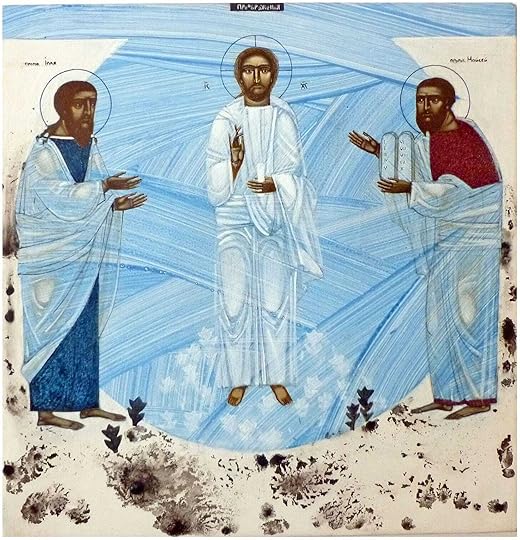
Tamed Cynic is a reader-supported publication. If you appreciate the work, consider joining the posse of paid subscribers!
Mark 9.2-9 — Transfiguration
The pivot between epiphany and lent is always turns on the transfiguration where the disciples behold Jesus, alongside Moses and Elijah, aflame with the glory of God but, like the burning bush, not consumed by it. For this year, the lectionary Gospel passage is Mark’s account of the Theophany:
Mark 9:2-9
Six days later, Jesus took with him Peter and James and John, and led them up a high mountain apart, by themselves. And he was transfigured before them, and his clothes became dazzling white, such as no one on earth could bleach them. And there appeared to them Elijah with Moses, who were talking with Jesus. Then Peter said to Jesus, "Rabbi, it is good for us to be here; let us make three dwellings, one for you, one for Moses, and one for Elijah." He did not know what to say, for they were terrified. Then a cloud overshadowed them, and from the cloud there came a voice, "This is my Son, the Beloved; listen to him!" Suddenly when they looked around, they saw no one with them any more, but only Jesus. As they were coming down the mountain, he ordered them to tell no one about what they had seen, until after the Son of Man had risen from the dead.
 Tamed Cynic Seven Ways of Looking at the TransfigurationTamed Cynic is a reader-supported publication. If you appreciate the work, consider joining the posse of paid subscribers. Jesus metamorphosed. Celebrities from the past. Petrified disciples. Luminous cloud. An event as important as Christmas or Easter! My friend Sarah has a new book coming out on the Transfiguration, and I think this conversation demons… Listen nowa month ago · 2 likes · Jason Micheli
Tamed Cynic Seven Ways of Looking at the TransfigurationTamed Cynic is a reader-supported publication. If you appreciate the work, consider joining the posse of paid subscribers. Jesus metamorphosed. Celebrities from the past. Petrified disciples. Luminous cloud. An event as important as Christmas or Easter! My friend Sarah has a new book coming out on the Transfiguration, and I think this conversation demons… Listen nowa month ago · 2 likes · Jason MicheliIf you’ve endured more than a handful of sermons, then chances are you already know how the preaching from this point on the mountaintop is supposed to go. Preachers point the finger at Peter and chalk this episode up as yet another example of Peter getting Jesus all wrong. It’s not about the mountaintop experience; it’s about rolling up our sleeves and serving serve the least, the lost, and the left behind.
The way down the mountain is almost always a descent into moralism.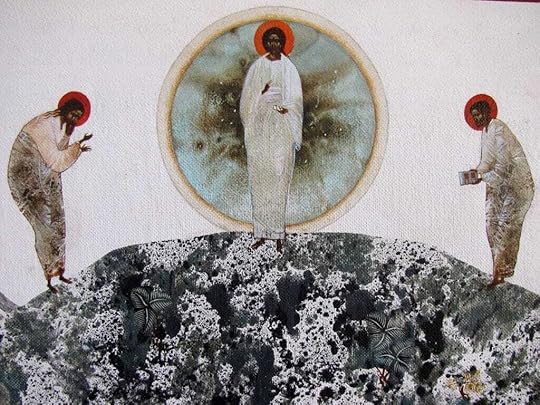
About how faith is about going back down into the valley of life to do the things upper middle class Christians aren’t embarrassed to affirm in front of their pagan co-workers.
Go back down the mountaintop, back into “real life,” and do like Christ.
Except—
If Peter is wrong, if this is nothing more than another example of how obtuse Peter is, then when Peter professes “Master, it is good for us to be here. Let us make three tabernacles, one for you, one for Moses and one for Elijah” why doesn’t Jesus correct him?
Why doesn’t Jesus rebuff Peter and say: ‘No, it is good for us to go back down the mountain to serve the least, the lost, and the lonely?’If Peter’s suggestion that they rest there is such a grave temptation, then why doesn’t Jesus exhort him like he does just before this scene and say: ‘Get behind me, Satan?’
This is the only instance in any of the Gospels where Jesus doesn’t respond at all to something that someone has said to him.February 5, 2024
"Until" is an Amazing Word

Tamed Cynic is a reader-supported publication. If you appreciate the work, consider joining the posse of paid subscribers.
We will be discussing chapters 7 and 8 of Fleming Rutledge’s book Epiphany: The Season of Glory tonight at 7:00 EST.
You can register to join us HERE.
In case you missed it, here is last week’s session with Fleming herself:
During the course of our discussions, my friend and fellow Fleming fan, Josh Retterer has been writing reflections on the reading.
Here’s his latest:
The agrarian philosopher Wendell Berry's response to “Love everybody,” was perfect in its honesty. “A man only has so much love to give!”
That’s certainly what it feels like when we hear that command in Jesus’s Sermon on the Mount. This is also where the oft invoked law/gospel distinction is thrust into the light. Christ’s word stands there, boldly, and won't be ignored; it definitely won’t ignore you. Gerhard Forde, in On Being a Theologian of the Cross, takes on probably the most impossible of all these impossible commands. I mean, have you met people, let alone enemies!
“The law says, ‘Thou shalt love!’ It is right; it is ‘holy, true, good.’ Yet it can’t bring about what it demands. It might impel toward the works of the law, the motions of love, but in the end they will become irksome and will all too often lead to hate. If we go up to someone on the street, grab them by the lapels and say, ‘Look here, you’re supposed to love me!’ the person may grudgingly admit that we are right, but it won’t work. The results will likely be just the opposite from what our ‘law’ demands. Law is indeed right, but it simply cannot realize what it points to. So it works wrath. It can curse, but it can’t bless. In commanding love law can only point helplessly to that which it cannot produce.”
This leaves us in a bit of a pickle. But, here is a wonderful thing, it all ends up working out amazingly well for us. In chapter 8 of Epiphany Rev. Rutledge tells us how to navigate this, with a particular emphasis on the preachers who will (dare) to preach it.
“It may be doubted, however, how seriously the ordinary Christian takes the Sermon on the Mount, or how well the average churchgoer even knows it. How many preachers have expounded the whole of it, or sought to illustrate what it might look like in practice? As soon as we ask this question, we must acknowledge that there has always been a tension in the way the sermon has been interpreted, sometimes rising to the level of serious divisions in Christian theology. Are we to understand the Sermon on the Mount as law, or as gospel?
Like the Ten Commandments, the sermon can be read as prescriptive instead of descriptive. When that occurs, the liberating gospel of unconditional grace is obscured under a heavy weight of impossible expectation. The result will often be that the sermon is not taken seriously. Preachers and teachers will always need to be alert to the challenge of getting this balance right. It is always tempting to read the Epistle of James prescriptively (“Faith by itself, if it has no works, is dead,” James 2:17) without reference to Paul (“No human being will be justified in his sight by works of the law,” Romans 3:20).3 Paul’s fundamental emphasis on justifying faith is not contradicted by the works that arise organically out of that faith, for the true vine produces branches (John 15:1-9; see also Romans 11:17-24). James seems to be saying that over a long lifetime, such as that of Abraham (James 2:21-23), God’s free gift of justifying faith will plainly show itself in God’s own works of righteousness. God’s mercy is fathomless, but it will never cancel out his justice; this seeming contradiction must continue to be at the heart of any serious attempt to proclaim the gospel. The symbiotic relationship of righteousness and mercy lies at the heart of the Beatitudes and the rest of the Sermon on the Mount, and they serve to authenticate faith. This understanding of faith and works should not be understood as a threat to the radicality of Paul’s preaching about the justification of the ungodly (Romans 4:5; 5:6). There are certain qualities that will emerge in the person who knows herself to be justified by grace and faith alone (sola gratia, sola fidei). Those qualities will be a result, not a cause of justification. Such qualities will look like the Beatitudes appearing in that person, even though the great adversary will be pulling in the other direction until the Lord comes again.”
That “until” is an amazing word. The fight is already won. That produces a palpable effect on us. It is a reality, like sap in a vine. Or that God’s mercy is fathomless. Even better, when the Lord returns, the great adversary’s work ends; death and darkness end. God’s mercy does not.
Amen!
 Get more from Jason Micheli in the Substack appAvailable for iOS and AndroidGet the app
Get more from Jason Micheli in the Substack appAvailable for iOS and AndroidGet the app
Jason Micheli's Blog
- Jason Micheli's profile
- 13 followers



